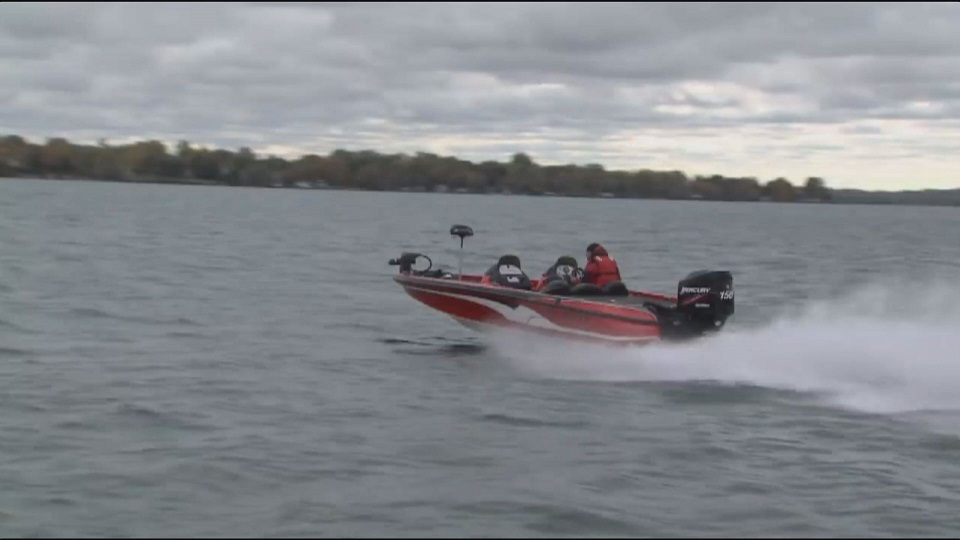The Canadian Red Cross says there were at least 39 unintentional water-related deaths in the Atlantic provinces this year – a type of death that the organization says is often preventable.

There were 13 water-related deaths in Newfoundland and Labrador, four in New Brunswick, 16 in Nova Scotia and six in Prince Edward Island in 2018, the organization said Sunday.
The total number is on par with previous years for the region, where the average number of water-related fatalities over the last five years was 38, but any number is still much too high, Red Cross Atlantic communications director Dan Bedell said.
“The point we try to make each year is that obviously, we would like to see zero drownings,” he said Sunday. “Even being consistent with what we’ve seen in the past few years, it’s still way too many.”
This year, over a third of water-related deaths involved commercial or recreational fishing, at least six involved swimming, and at least two involved a road vehicle entering the water.
READ MORE: Drowning a winter risk too, says Livesaving Society report
Males ranging in age from two to 78 accounted for 33 fatalities, while females between the ages of 29 and 82 made up the other six.
The organization notes that these figures are based on obituary notices and reports from police, media and social media, and they said these statistics are not official and may change as new information becomes available.
“Red Cross statistics also exclude known or suspected suicides, which are not considered ‘unintentional’ deaths,” read a news release.
In Newfoundland and Labrador, eight of the 13 deaths were associated with commercial or recreational fishing or boating. Three others involved swimming, one involved a vehicle leaving a road and crashing into a lake, and one occurred when a woman collapsed after entering a river to cool off from the summer heat.
In New Brunswick, all four involved a watercraft overturning: an American man whose kayak overturned in the Bay of Fundy, a man whose canoe overturned on a lake near Musquash, and a father and daughter who both died after their raft overturned on the Miramichi River.
Seven of the 16 fatalities in Nova Scotia were associated with commercial or recreational fishing, two involved recreational boating, and a further two involved recreational swimming.
The Red Cross said there were also three “rare circumstances,” pointing to a woman who fell through ice while skiing across a lake, a dump truck driver whose vehicle slid into the Halifax Harbour, and one case in which a toddler drowned in a backyard pool.
And in P.E.I., four of the six fatalities involved commercial fishing vessels, including two that collided and one that capsized. The remaining two involved a Quebec tourist swimming at an unsupervised beach near Cavendish and a man who died in a watercraft collision off the coast of Charlottetown.
While the collective number of fatalities from the Atlantic provinces are on par with the five-year average, there were a few differences from province-to-province.
The Red Cross said there was a “significant decline” this year in water-related deaths from the five-year average in New Brunswick – from nine to four – while P.E.I. saw a “significant increase” from two to six.
Newfoundland and Labrador’s figure was the same as its previous five-year average of 13, while there was a slight increase in Nova Scotia from 14 to 16.
“Not all unintentional water-related deaths are a result of drowning. Examples of other causes include hypothermia, pre-existing medical conditions, or trauma injuries,” the Red Cross noted in the release.
The organization made a number of suggestions to prevent water-related deaths, which include wearing flotation devices while on or near any body of water, not consuming alcohol or drugs while swimming or operating a vehicle, and taking swimming lessons.
WATCH: What you need to know about boating safety
-PK_TOR1CFZ8_1_848x480_1236314179511.jpg?w=1040&quality=70&strip=all)
While there were still about 15 deaths this year related to commercial or recreational fishing in Atlantic Canada, Bedell said that over the years, the number of deaths from commercial fishing incidents have been in decline.
“That’s a really good thing, and we would credit the industry itself for taking the lead on that,” he said.
He added that there had also been no drowning deaths this year from snowmobiles going through the ice, while there have been several instances in previous years, which he also credited to improved safety measures in the industry.
Still, Bedell said, more needs to be done to prevent water-related deaths in Atlantic Canada, and he hopes annual reporting from the Red Cross will help them gauge whether or not their work is having an impact.
“There are 38 families out there (in Atlantic Canada) that have suffered a terrible loss, and they’ll live with that forever,” he said. “We can’t change that. All we can do is try to learn from what happened to others.”
About 525 Canadians die each year in unintentional water-related deaths, the Red Cross said.
- What is a halal mortgage? How interest-free home financing works in Canada
- Capital gains changes are ‘really fair,’ Freeland says, as doctors cry foul
- Budget 2024 failed to spark ‘political reboot’ for Liberals, polling suggests
- Peel police chief met Sri Lankan officer a court says ‘participated’ in torture



Comments